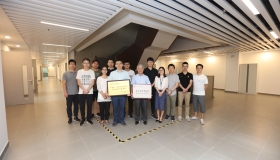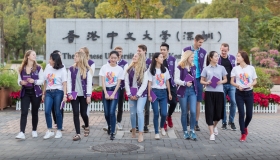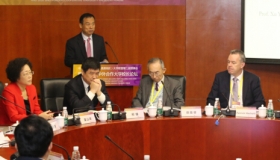Office Communication Surges Sixtyfold, Prof. Zou Wenli’s Opinion on New Business Trends and Consumer Behaviours During Coronavirus Outbreak
During this long Spring Festival holiday, the novel coronavirus has sprawled across China. This reality gives rise to the phenomenon that Chinese consumers stay at home intensively, actively and frequently. Most of them begin to communicate, entertain and shop online. Statistics from Umeng+, a company providing mobile app analytics for mobile development teams and individual developers, show that the use of online games, video apps and online pharmacies surges during the festival, and the office communication even increased by 65 times compared with the same period of previous year. By contrast, the shares of tourism and auto industry sharply reduced. As consumer behavior has changed into an E-commerce-oriented pattern, and user behavior in mobile Internet of various industries is also changing, markets begin to make corresponding adjustments. Prof. Zou Wenli from SME at CUHK-Shenzhen conducted a thorough analysis and demonstrated the business trends upon the pandemic.
From Offline to Online, New Changes of Users Behaviors and Consumption Habits
According to Prof. Zou, consumer behaviors change from offline to online during the outbreak of coronavirus, and the desire and frequency of consumption decline, mainly because of the uncertainty and pessimism brought by the coronavirus. Furthermore, the channel of obtaining information about pandemic control covers from traditional media to various new social media, such as self-media and WeChat. Through such various channels, information about the virus become overloaded and mixed, and misinformation even spreads widely. After bombarded with fake news made up by self-medias at early stage, people become rational and critical, and more dependent on media with more authority.
Online Platforms May Increase Stably in Long Term, Tourism and Catering Businesses Slump Temporarily
The reduction of tourism, catering businesses and transportation was impacted by the temporary decline of markets’ demands, and a temporary shortage of supply caused by the suspension of companies’ production and operation. As the coronavirus outbreak gets controlled in China, consumers’ demands will increase, and there may even be retaliatory consumption. The growth of online education, work from home, online medicine stores, fresh food deliveries and online entertainments may continue in a long term. On one hand, as the increasing demands during the outbreak facilitate improvements in technologies and services of companies, consumer experience improves. On the other hand, users’ habits and stickiness will also develop. However, this change may be determined by the pandemic duration. The longer it lasts, the harder the consumption habits will change and the higher the user’s stickiness will be. According to the research of iiMedia, active users of Ding Talk, Ding Dong fresh food delivery and Lizhi (an online audio platform), rise rapidly during the outbreak. Once these users develop a stickiness of consumption, the lasting growth will possibly continue.
Online Service Quality and Hygienic Conditions Become Consumers’ Concerns
Companies firstly need to focus on the change of consumers’ attitudes and demands. For example, the dependence on online consumption and the Internet technology is increasing. The questionable attitudes toward online services in the past have changed positively, and people will be more reliant on and accustomed to the Internet technologies and services. Therefore, companies need to better integrate offline and online channels to get the best out of marketing efforts. After the coronavirus outbreak, consumers will have higher requirements for the hygienic conditions of products and services, especially for that of group consumption. The companies that can provide better conditions for consumers will gain a competitive advantage. Besides, during the outbreak, consumers experience a long time of individual and household shopping at home, with concerns about hygienic conditions outside and fears of catching the pandemic in the short- and mid-term. It is suggested that the industries of group consumption create more innovative consumption experience. It can release their suppressed social demand and gratification for fun emotionally, and can meet their needs for health and safety.
Brand Voice During the Pandemic: Caring, User-friendly and Social Conscious
No matter the industries are having a good time or a bad time upon the outbreak, they still need to keep close relationships and enhance emotional ties with customers. For brands, the most valuable asset is customers, especially those with high loyalty. The brands with better performance during this period can cultivate users’ stickiness to get them kept this consumption habits after the pandemic. The brands with less favourable performance during this period also need to maintain relationships with customers, trying to become the first choices when they release their purchase demands. Online intelligence of commodity service and customer database can smooth communications between companies and their customers, and can prevent them from negative impacts by deterministic forces. Moreover, people who have been through a lot during this period may have higher requirements for emotional attributes of brands. The emotion-oriented consumption or consumption decisions made by emotional connections with brands will become more evident. Prof. Zou pointed out that it is crucial for companies to build a brand with care, user-friendliness and social responsibility.

Lili Zou is an Assistant Professor of Marketing at the School of Management and Economics, The Chinese University of Hong Kong, Shenzhen. She received her Ph.D. degree in Marketing from School of Business, The University of Hong Kong. Her research interests mainly focus on customer-based strategies, including crowding management, customer relationship management, anthropomorphism, and AI-user interaction.




